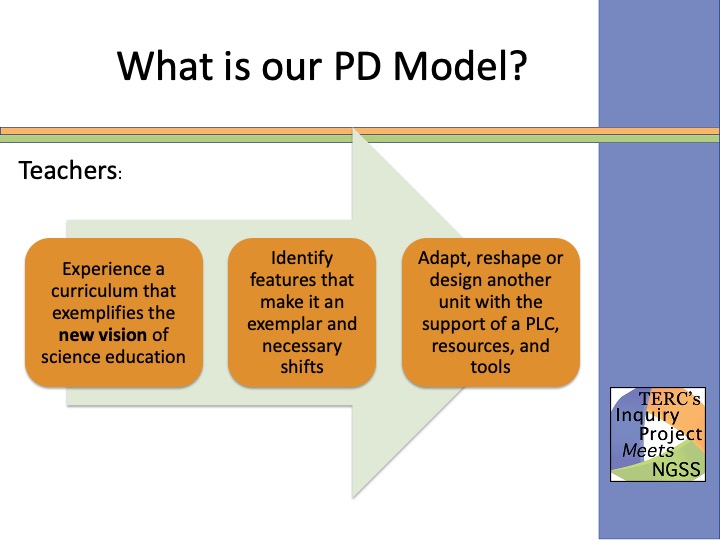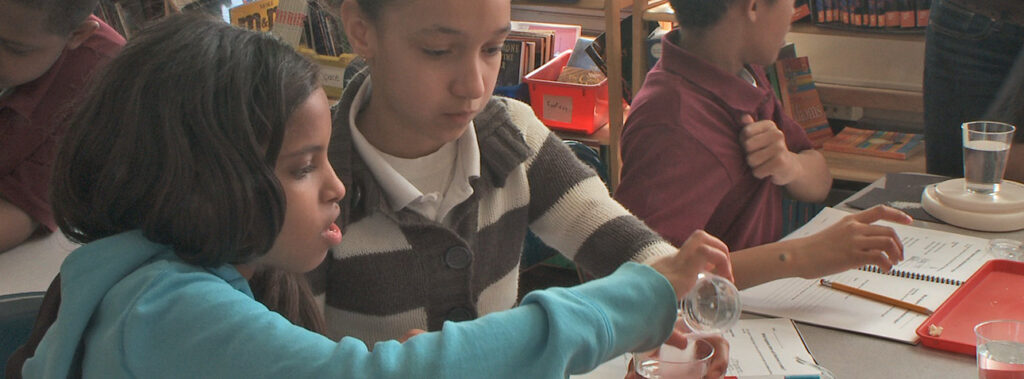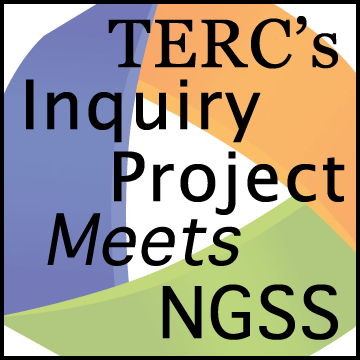The Grade 5 Inquiry Curriculum Meets the New Science Standards
The Framework for K-12 Science Education (NRC, 2011) and the Next Generation Science Standards (NGSS) (Achieve, 2013) present an exciting vision of science education. Enacting the vision will require a large shift in existing curricula and science pedagogy. Our overarching goal is to help teachers implement the vision. Our project is a collaboration of TERC and a group of fifth grade teachers from a school in Illinois and their science coordinator. We wanted to test the idea that teachers can gain a clearer understanding of the NGSS vision and the shifts required to achieve it through immersion in an existing curriculum that exemplifies the nature of science learning described in the Framework and addresses an NGSS performance expectation.

We hypothesized that by teaching a curriculum exemplar (the Inquiry Project Grade 5 curriculum, Investigating Water Transformations), teachers will be able to identify some key features of the new vision and to recognize the presence or absence of these features in other curricula. Together, we identified 10 significant ways that the Inquiry Project curriculum reflects the vision of the Framework and NGSS.
10 ways the Inquiry Project reflects the vision of the NGSS and Framework (pdf)
Part two of the project addresses the question of transfer. Having identified key features of a science classroom that reflects the vision, can teachers working together in a Professional Learning Community (PLC) begin to incorporate these features into other science units? What tools or resources will support their work?
Here you will find agendas and resources for a five-session PLC pathway designed to help teachers as they make the science classroom more closely reflect the vision of the Framework and NGSS.

Acknowledgements
This work was funded by the TERC/CSTL General Fund.
About TERC
TERC is a nonprofit made up of teams of math and science education and research experts dedicated to innovation and creative problem solving. At the frontier of theory and practice, TERC’s work encompasses research, content and curriculum development, technology innovation, professional development, and program evaluation. TERC has a passion for social justice and strives to create level playing fields for all learners, reaching more than three million students every year.
To learn more, please visit www.terc.edu.
